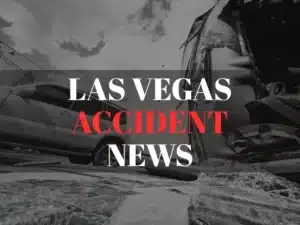Like other states, the Nevada wrongful death statute of limitations for filing lawsuits begins running on the date of the person’s death or the date that the death is discovered, but the limitation period is tolled when the plaintiff is a minor. Being under the age of 18 is considered to be a legal disability under the law, so the state stops the time from accruing until the person reaches the age of 18. This may allow children of people who are killed by the negligence or wrongful conduct of others more time to file lawsuits. A Las Vegas wrongful death attorney may review a case in order to determine whether the statute of limitations has ended or if it has been tolled.
Nevada Wrongful Death Statute of Limitations
All states have statutes of limitations codified in their laws that limit the time to file lawsuits. Different types of civil actions carry different limitation periods. Nevada Revised Statutes Sect. The statute of limitations for wrongful death provides that people must file a wrongful death lawsuit within two years of the date of the person’s death or the date that the death was discovered. The time period is further limited by the personal injury limitation period. The wrongful death limitation period will begin running from the date the victim’s injury occurred or was discovered. If the victim didn’t file a personal injury lawsuit within his or her own statutory period of limitations and later succumbs to his or her injury, a wrongful death action will be barred.
When the wrongful death statute of limitations has run out, people will be permanently barred from recovering damages for the incident. There are important exceptions to the statute of limitations, including when a plaintiff is under the age of 18 at the time of the accident or incident.
Tolling
Tolling of a statute of limitations means that the time doesn’t accrue while the condition exists. Under Nevada Revised Statute 11.250(1), people who are under age 18 have the statute of limitations tolled until they reach the age of majority. This means that a person who is under age 18 when his or her parent is killed will potentially have until age 20 to file a lawsuit. A Las Vegas wrongful death attorney encourages people not to wait to file, however. It is best to not have to litigate statute of limitations questions, and it is easier to investigate and build cases when the evidence is still fresh.
Once a child turns 18-years-old, the wrongful death statute of limitations clock resumes running. Therefore, these young adults must initiate their legal actions within two years of their 18th birthdays. Failing to act within the allowed timeframe after the tolling period may result in them losing their legal right to pursue compensation.
The tolling of the statute of limitations happens automatically. Victims, or representatives on their behalf, need not file any specific motions or paperwork to stop the statute of limitations for wrongful death clock.
Likewise, the clock automatically begins on the child’s 18th birthday. For instance, a child loses both parents in a motor vehicle accident at 10-years-old. Rather than having to make important legal decisions by the age of 12, the statute of limitations for the child to file a wrongful death lawsuit will not begin until he or she turns 18-years-old.
When Can You File a Wrongful Death Lawsuit?
If the wrongful or negligent acts of another person cause someone’s death, certain family members of the decedent have the right to take legal action for compensation. In Nevada, wrongful death claims can be brought by a personal representative for the deceased, as well as by intestate heirs or the surviving family.
Surviving family, for the purposes of a legal claim, include the decedent’s spouse or children.
If the decedent was not married or did not have any children, then the right to pursue a claim falls to his or her parents, siblings, or next closest surviving family member.
Proving Wrongful Death
While intent does not contribute to liability in wrongful death claims, there are elements that heirs will have to prove for a successful lawsuit. For a court to find a defendant liable for wrongful death, the plaintiff will need to prove that the defendant acted wrongfully, negligently, or recklessly. The plaintiff’s case will also need to show that the defendant’s actions directly caused the death of the decedent.
In addition to establishing the defendant’s actions and their results, plaintiffs in wrongful death cases will need to show they are the decedent’s heir or personal representative. They must also show they incurred damages as a result of the decedent’s death.
What Damages Can You Recover for a Wrongful Death Claim?
No amount of money can bring back what they lost due to another’s recklessness or negligence. However, recovering damages may help set surviving children up financially as they adjust to life without their loved one.
The recoverable compensation in wrongful death claims is different from the damages available in traditional personal injury claims. The deceased’s estate may recover damages for some losses, while heirs may recover compensation for their losses.
A successful wrongful death claim filed by the estate may recover special damages for losses, such as medical bills incurred for treatment of the fatal injury prior to death. Additionally, such claims may recover compensatory damages for pain and suffering, and other such non-economic losses suffered by the deceased before he or she passed away.
In some cases, the court may see fit to award punitive damages. Unlike other damages, which compensate victims for economic and non-economic losses, punitive damages are meant to punish the defendant or deter others from similar acts in the future.
After the tolling period, a surviving family member who was underage at the time of the decedent’s death may pursue a claim for the damages he or she suffered due to the death of the decedent.
Damages recoverable by heirs in wrongful death claims include:
- Loss of probable support
- Loss of society, consortium, and comfort
- Grief or sorrow
- The decedent’s pain and suffering
To calculate the losses suffered by surviving children as a result of wrongful death, the court may consider their ages and earning capacities when the death occurred. When it happens early in life, losing a parent or other close family member can be difficult to process and cope with. In addition to grieving, however, children may also face financial challenges as a result of the loss of a provider. Understanding the tolling of the statute of limitations for wrongful death and how that will affect their case can help those who lose parents at an early age due to another’s actions to recover the compensation they need.
Learn More About Nevada Wrongful Death Claims
Wrongful Death: What Are Your Odds?
The Types of Wrongful Death Lawsuits





